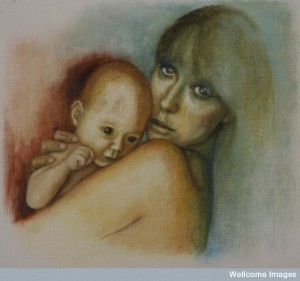Commission Chair, Professor Patton in his research on perinatal depression, published by The Lancet, has found that 85% of women who experienced perinatal depression had a history of mental health problems, often starting in their adolescent years. By comparison, the rates of perinatal depression in women with no history of mental health problems was one in 13 pregnancies.
This research, conducte d by the Murdoch Childrens Research Institute has blown out of the water a long-held belief that problems of depression during pregnancy and after pregnancy were unique problems that only occurred at that time of life (due to hormonal changes). These problems can now be viewed as a continuation of problems that generally emerge during the teen and young adult years.
d by the Murdoch Childrens Research Institute has blown out of the water a long-held belief that problems of depression during pregnancy and after pregnancy were unique problems that only occurred at that time of life (due to hormonal changes). These problems can now be viewed as a continuation of problems that generally emerge during the teen and young adult years.
This research highlights, what we at the Lancet Youth Commission have long known, that a healthy start to life begins in adolescence, who are tomorrow’s parents. Responding to youth mental health problems is going to be an important strategy for preventing later maternal perinatal depression.
No doubt the effects of depression in pregnant women and new mothers can be profound, it has the potential to undermine the maternal infant bond which is so essential to the emotional and intellectual development of the child. Perinatal depression is a neglected global health priority affecting 10 to 15 per cent of women in wealthy, it is hoped that this research will help identify vulnerable women before they fall pregnant.
1 Perinatal depression is the collective name for depression which occurs either during pregnancy (known as antenatal depression), or after the birth of a baby (known as postnatal depression).
